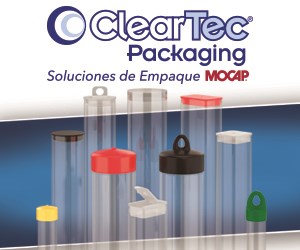Compartir
Lea a continuación

At IMTS Spark, the discussion panel “Country Outlook: Destination Mexico” was presented as part of the International Country Outlook on Spark, where the AMT team presents an overview of the business environment in key international markets.
“Recently, there has been talk about the fragility of global supply chains. We spend a lot of time with our members looking at Mexico as a close source of supply for their castings and machined parts, among other components,” said Ed Christopher, VP Global Service at AMT.
In this regard, Carlos Mortera, AMT’s International Director for Latin America, said that in Mexico the consumption and adoption of manufacturing technology is really interesting in areas such as metrology, cutting tools, automation, robotics and other systems that are part of the manufacturing process.
“One of the most outstanding aspects of Mexico is that it has constantly maintained the consumption of machine tools, around $2 billion since 2012. So, this has created a very large maintenance ecosystem for manufacturing technology, which has been absorbed by the manufacturing industry in Mexico,” said Mortera.
The USMCA
Mortera said that the USMCA Agreement is completely comprehensive and focuses on increasing regional supply chains, a beneficial aspect for Mexico, the United States and Canada, and noted that it creates a stronger link between countries that share common business practices within the same time zones in general.
“Another benefit has to do with the fact that we are in an implementation phase of the agreement to focus on developing our capacity over a period of three to seven years, which means that we could complement processes or replace supply options from other locations in Asia or Europe,” explained Mortera.
Carlos Mortera pointed out that the perception of the industry in the region is one of future growth, eventually replacing components and supply from locations such as Asia and Europe to Mexico, the United States or Canada.
“Of course there is work ahead in terms of prioritizing the issue of regional content and the parts that are critical and will generate a significant impact,” said Mortera, adding that knowledge transfer is also important indicating that the relationship between the United States, Mexico and Canada in terms of training and skills development is quite strong.
Mortera explained that Mexico has a reputation and image as a powerhouse in automotive manufacturing: “45% of the auto parts consumed in the North American region are manufactured in Mexico. This sector will continue to grow and expand.”
He also pointed out that other markets with growth potential are machinery, telecommunications, electrical-electronic and medical devices, among others: “All of these industries had strong growth potential, even before considering the issue of reshoring and nearshoring. So, we can imagine what will happen now that there is a strategy to try to standardize supply chains in different regions. There will be a goal to increase the level of supply, which is nationally within Mexico, the United States, Canada and even in places like Costa Rica and Colombia.
In this regard, Bill Herman, International Exhibitions & Sponsorship director at AMT said that Mexico seems to be a natural choice on the border with the United States: “We have a trade agreement that facilitates access to field service and customer support.”
Lea a continuación
Nearshoring: una nueva oportunidad para la manufactura en México en medio de la pandemia
La pandemia ha hecho que las OEM reflexionen sobre la conveniencia de tener a sus proveedores a miles de kilómetros de distancia. Por varias razones, que aquí le explicamos, México ofrece las condiciones necesarias para relocalizar esa producción.
Leer MásCadena de proveeduría necesita más tecnología y mercado para suplir la demanda en México
Las inversiones recibidas por México en los últimos años, especialmente para las industrias automotriz y aeroespacial, han hecho que la producción crezca y que las nuevas OEM establecidas busquen proveedores locales que suplan sus necesidades de manufactura.
Leer MásMesas magnéticas optimizan la electroerosión en producción de piezas complejas
Evolución en Moldes venía asumiendo varios retos para el mejoramiento de sus procesos de manufactura de componentes complejos para sus moldes. La aplicación de mesas magnéticas optimizó el mecanizado por electroerosión y mejoró sus tiempos de entrega.
Leer Más

















